This article was co-authored by Jeremy Bartz, PhD. Dr. Jeremy Bartz is a Clinical Psychologist in private practice based in Los Angeles, California. Dr. Bartz specializes in treating depression, anxiety, OCD, mind-body syndromes, chronic pain, insomnia, relationship difficulties, attachment trauma, and resolving the effects of narcissistic trauma. He received a Ph.D. in Counseling Psychology from Brigham Young University and completed a fellowship In Pain Psychology at Stanford's premier pain management clinic.
There are 18 references cited in this article, which can be found at the bottom of the page.
This article has been viewed 179,417 times.
You may see many articles on trying to get rid of insomnia, but for some people, living with it is the only option. Maximizing your diet to give you energy, trying to energize your body in other ways, and aiming to optimize what sleep you do get are some of the ways you can cope when you live with insomnia.
Steps
Optimizing Your Chances for Sleep
-
1See a doctor. If you haven’t already, discuss your insomnia with a doctor to make sure there is no treatable medical reason for your poor sleep. There is a long list of conditions that can cause symptoms that mimic insomnia, from anxiety and depression, to hyperthyroidism, Lyme disease, and heart conditions.
- Your insomnia could be caused by obstructive sleep apnea, a common condition in people who snore. This condition occurs when the muscles in the back of your throat are relaxing so much that your airway narrows for 10-20 seconds, preventing you briefly from getting air. Your brain will wake you so you can get more air, over and over again throughout the night causing disrupted sleep.[1]
- Go over your medications with your doctor, as some may interfere with your sleep. This includes mentioning anything herbal, alternative, or over the counter that you might be taking.[2]
- Be sure to tell your doctor if you have any pain that is preventing you from sleeping.
- Your doctor may recommend cognitive behavioural therapy for insomnia (CBTI), completing sleep journals, or relaxation training to sort out your sleep.[3]
-
2Avoid or limit naps. Though you may be tempted to take a quick nap during the day, and many people can do so effectively, napping may be counterproductive for the insomnia sufferer. It will throw off your circadian rhythms, making it even harder to fall asleep at night.[4]
- If you must nap, maximize it at 30 minutes and don’t nap after 3 pm.
- Stick to as regular a sleep schedule as possible, waking and going to bed at the same time each day, even on weekends.[5]
Advertisement -
3Make your bedroom sleep friendly. Sleep experts agree that your bed should be used only for sleep and sexual intimacy so keep the computers and TV out of your bedroom.[6]
- Have black-out curtains to keep your room dark at night.
- Keep your bedroom cool. Being too warm prevents you from falling soundly asleep. Studies have shown that wearing a cooling cap at night reduces time to fall asleep and increases length of sleep.[7]
- Use a white noise machine or fan to drown out inconsistent environmental noises and create a comforting atmosphere.
-
4Try melatonin or valerian root at night. Both supplements are touted as facilitating sleep. Just be sure to not take them too early before bed (within 30 minutes is best) or for too many weeks without consulting your doctor.[8]
- You should also consult your doctor if you are currently taking any medications. Herbal supplements are all natural, but sometimes they do interact with medications.
- Melatonin occurs naturally in the body to regulate your sleep wake cycle and we generally lose melatonin as we age, hence the creation of a supplement. Its safety in long term usage is not known. Take 3-5 milligrams 30 minutes before bed.[9] Melatonin can interact with anticoagulants, immunosuppressants, diabetes medications, and birth control pills.[10]
- Valerian root is an herbal supplement with a mildly sedating effect. This root can be somewhat addictive. Try 200 milligrams 30 minutes before bed. Valerian root may increase other sleep aids' effects as well as the sedative effects of alcohol, benzodiazepines and narcotics and can interfere with other prescription medications.[11]
-
5Learn to cope with the stress that causes insomnia. It is important to deal with your stress and get back to a regular sleep schedule. There are several things that you can do to counter nighttime stress, such as journaling about your stresses, developing a bedtime ritual, and practicing progressive muscle relaxation.
- Don't lie in bed stressing about the fact that you can't fall asleep. That's just going to make things worse. Instead, think about something pleasant. If you haven't fallen asleep after 15 minutes, get up and do something relaxing until you start to feel drowsy.[12]
-
6Go for acupuncture. Acupuncture helps decrease stress by regulating hormones, and decreased stress leads to a better sleep. Acupuncture may also assist the release of melatonin.[13]
- Ear acupuncture in particular seems to be helpful for facilitating sleep.
Improving Your Diet
-
1Stay hydrated. We tend to feel more tired when we are dehydrated because our blood thickens, forcing your heart to pump harder to circulate the blood throughout your body, and this extra work by the heart tires us out.[14]
- Doctors recommend having 2 liters of water a day, or about 8 glasses. Soft drinks and coffee don’t count. You can also get water naturally through fruits and vegetables such as watermelon, celery, and broccoli.
- You’ll know you’re getting dehydrated if your urine turns from a pale, clear fluid (as it is when you’re well hydrated) to a darker yellow.
- Don't wait until you feel thirsty to drink. By the time your brain starts sending you signals, you’re already lacking fluids, hence the message of being thirsty. Drink regularly throughout the day to stay hydrated.
-
2Eat small meals regularly throughout the day. Getting little bursts of carbohydrates and protein throughout the day will help you stay awake and alert. Plus, if you eat every 3-4 hours, you won’t have blood sugar crashes, which make you feel tired.[15]
- Eating breakfast really is the most important way to start the day, so don’t skip it. If you find you’re often on the run to work or school and don’t have time for breakfast, get into the habit of preparing grab-and-go options.
- Include fibre so you have the slower release of carbs that keeps you from crashing. Include popcorn, tortillas, or whole grain pitas in your meal and snack time, for example.
- Small meal examples that work include low-fat yogurt with berries and granola, a whole grain chicken wrap with greens, or apple slices with some peanut butter.
-
3Enjoy caffeine responsibly. It is generally recommended that you avoid caffeine after noon. When you live with chronic insomnia, this might be really hard to do so try to minimize it to 200-300 milligrams, or no more than 2 cups of coffee.[16]
- Decaffeinated coffees are not 100% caffeine free, so don’t be fooled.
- Energy drinks may not be a good choice. They have up to 250 milligrams of caffeine per serving and can increase your tolerance to caffeine, meaning you need more and more caffeine to feel the effects. They also have a lot of sugar and don’t actually provide any more energy than a regular soda.[17]
-
4Avoid alcohol. Although alcohol is often associated with partying and fun, it is actually a depressant that will drag you down and make you even more sleepy, make you restless at night, and increase your night-time waking.[18]
Energizing Yourself
-
1Exercise. Getting at least a 30 minute workout a day, five hours before bed, will increase your chances of sleeping better at night.[19]
- Expending energy breeds energy. Exercise boosts your energy-producing mitochondria in your cells, fuels your circulation of vital oxygen, and releases neurotransmitters and the feel-good endorphins responsible for the “runners’ high.”[20]
- Short bursts of activity throughout the day can help you manage the fatigue that might set in while you are at work or school. Take the stairs instead of the elevator. Walk to school instead of taking the bus. Get up and walk around the office for a minute every 30 minutes.
-
2Listen to energizing music. Dance around to music while you unload the dishwasher or put on music in your office, if allowed.
-
3Get wet. Having a quick shower in the middle of the day or even just going to the bathroom to splash some water on your face can do wonders to wake yourself up.[21]
-
4Go outside. Even for a brief spell, taking a quick break to get some sun and fresh air can invigorate you enough to get through the rest of the day.
-
5Work smarter during the day. If you find that your insomnia is affecting your work habits, try cutting out distractions at work so that you can really focus when you have the energy to do so. That includes self-distracting behaviours such as checking Facebook.[22]
- Work with a clear goal in mind. Whether you’re trying to write an essay for school or prepare a presentation at work, having a focus and smart goals will then help you feel energized when achieve your goal. Have a task list and avoid straying from it.
- Do the more mentally taxing work when you’re sharp and keep the menial tasks for when you’re more tired. You can still be productive filing or writing emails when you’re worn down.
- Work standing up, if possible. It helps keep you awake and burns calories.
Expert Q&A
Did you know you can get expert answers for this article?
Unlock expert answers by supporting wikiHow
-
QuestionWhat should I do if I can't sleep?
 Allison Broennimann, PhDDr. Allison Broennimann is a licensed Clinical Psychologist with a private practice based in the San Francisco Bay Area providing psychotherapy and neuropsychology services. With over a decade of experience, Dr. Broennimann specializes in in-depth psychotherapy to provide solution-focused treatments for anxiety, depression, relationship problems, grief, adjustment problems, traumatic stress, and phase-of-life transitions. And as part of her neuropsychology practice, she integrates depth psychotherapy and cognitive rehabilitation for those recovering after traumatic brain injury. Dr. Broennimann holds a BA in Psychology from the University of California, Santa Cruz, and an MS and Ph.D. in Clinical Psychology from Palo Alto University. She is licensed by the California Board of Psychology and is a member of the American Psychological Association.
Allison Broennimann, PhDDr. Allison Broennimann is a licensed Clinical Psychologist with a private practice based in the San Francisco Bay Area providing psychotherapy and neuropsychology services. With over a decade of experience, Dr. Broennimann specializes in in-depth psychotherapy to provide solution-focused treatments for anxiety, depression, relationship problems, grief, adjustment problems, traumatic stress, and phase-of-life transitions. And as part of her neuropsychology practice, she integrates depth psychotherapy and cognitive rehabilitation for those recovering after traumatic brain injury. Dr. Broennimann holds a BA in Psychology from the University of California, Santa Cruz, and an MS and Ph.D. in Clinical Psychology from Palo Alto University. She is licensed by the California Board of Psychology and is a member of the American Psychological Association.
Clinical Psychologist
-
QuestionHow do I wind down at night?
 Jeremy Bartz, PhDDr. Jeremy Bartz is a Clinical Psychologist in private practice based in Los Angeles, California. Dr. Bartz specializes in treating depression, anxiety, OCD, mind-body syndromes, chronic pain, insomnia, relationship difficulties, attachment trauma, and resolving the effects of narcissistic trauma. He received a Ph.D. in Counseling Psychology from Brigham Young University and completed a fellowship In Pain Psychology at Stanford's premier pain management clinic.
Jeremy Bartz, PhDDr. Jeremy Bartz is a Clinical Psychologist in private practice based in Los Angeles, California. Dr. Bartz specializes in treating depression, anxiety, OCD, mind-body syndromes, chronic pain, insomnia, relationship difficulties, attachment trauma, and resolving the effects of narcissistic trauma. He received a Ph.D. in Counseling Psychology from Brigham Young University and completed a fellowship In Pain Psychology at Stanford's premier pain management clinic.
Clinical Psychologist First, prep for your wind down—get everything in order so you can just get into bed. Make your bed and pull the sheets back, take a shower, put on your PJs, and brush your teeth. Then, do whatever it is that helps you wind down, like watching a relaxing TV show. When you start to feel drowsy, you can go straight to bed without doing anything else.
First, prep for your wind down—get everything in order so you can just get into bed. Make your bed and pull the sheets back, take a shower, put on your PJs, and brush your teeth. Then, do whatever it is that helps you wind down, like watching a relaxing TV show. When you start to feel drowsy, you can go straight to bed without doing anything else. -
QuestionDo I need to go to bed at the same time every night?
 Jeremy Bartz, PhDDr. Jeremy Bartz is a Clinical Psychologist in private practice based in Los Angeles, California. Dr. Bartz specializes in treating depression, anxiety, OCD, mind-body syndromes, chronic pain, insomnia, relationship difficulties, attachment trauma, and resolving the effects of narcissistic trauma. He received a Ph.D. in Counseling Psychology from Brigham Young University and completed a fellowship In Pain Psychology at Stanford's premier pain management clinic.
Jeremy Bartz, PhDDr. Jeremy Bartz is a Clinical Psychologist in private practice based in Los Angeles, California. Dr. Bartz specializes in treating depression, anxiety, OCD, mind-body syndromes, chronic pain, insomnia, relationship difficulties, attachment trauma, and resolving the effects of narcissistic trauma. He received a Ph.D. in Counseling Psychology from Brigham Young University and completed a fellowship In Pain Psychology at Stanford's premier pain management clinic.
Clinical Psychologist You should have a general sleep time, but that needs to be flexible. If it's 10:00, for instance, and you start to feel drowsy at 9:15, you don't have to fight through and stay up. On the other hand, if it's 10:00 and you're still awake, you might sit up a little longer until you start to feel drowsy. However, do get up at the same time every morning. If you sleep in, it's like giving yourself jet lag. And don't take any naps.
You should have a general sleep time, but that needs to be flexible. If it's 10:00, for instance, and you start to feel drowsy at 9:15, you don't have to fight through and stay up. On the other hand, if it's 10:00 and you're still awake, you might sit up a little longer until you start to feel drowsy. However, do get up at the same time every morning. If you sleep in, it's like giving yourself jet lag. And don't take any naps.
References
- ↑ https://www.nhlbi.nih.gov/health/sleep-apnea
- ↑ https://my.clevelandclinic.org/health/diseases/12119-insomnia
- ↑ Jeremy Bartz, PhD. Clinical Psychologist. Expert Interview. 8 January 2021.
- ↑ Jeremy Bartz, PhD. Clinical Psychologist. Expert Interview. 8 January 2021.
- ↑ Jeremy Bartz, PhD. Clinical Psychologist. Expert Interview. 8 January 2021.
- ↑ https://www.sleepfoundation.org/insomnia/treatment/cognitive-behavioral-therapy-insomnia
- ↑ http://www.sciencedaily.com/releases/2011/06/110613093502.htm
- ↑ https://www.nhs.uk/conditions/insomnia/
- ↑ http://www.gnjournal.com/article/S0197-4572(06)00242-4/pdf
- ↑ https://www.mountsinai.org/health-library/supplement/melatonin
- ↑ https://ods.od.nih.gov/factsheets/Valerian-HealthProfessional/
- ↑ Jeremy Bartz, PhD. Clinical Psychologist. Expert Interview. 8 January 2021.
- ↑ http://www.gnjournal.com/article/S0197-4572(06)00242-4/pdf
- ↑ https://www.sleepfoundation.org/nutrition/hydration-and-sleep
- ↑ https://www.ncbi.nlm.nih.gov/pmc/articles/PMC5015038/
- ↑ https://www.sleepfoundation.org/nutrition/caffeine-and-sleep
- ↑ http://www.sciencedaily.com/releases/2014/10/141002084308.htm
- ↑ https://americanaddictioncenters.org/alcoholism-treatment/insomnia
- ↑ https://www.hopkinsmedicine.org/health/wellness-and-prevention/exercising-for-better-sleep
- ↑ http://www.health.harvard.edu/special-health-reports/boosting-your-energy
- ↑ http://web.csulb.edu/~psych/deptinfo/faculty/thayer/SelfRegulationofMood.pdf
- ↑ http://www.forbes.com/2010/03/01/tired-energy-work-forbes-woman-time-business.html
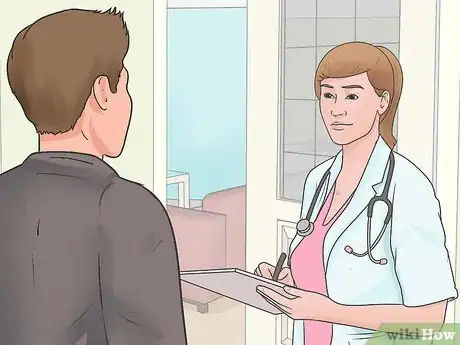

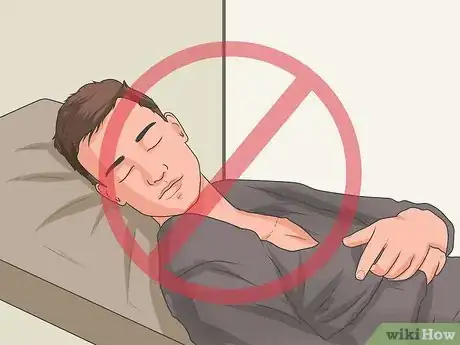
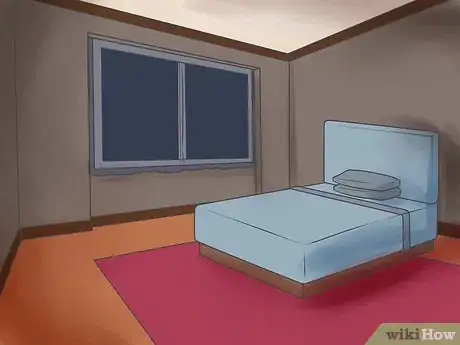
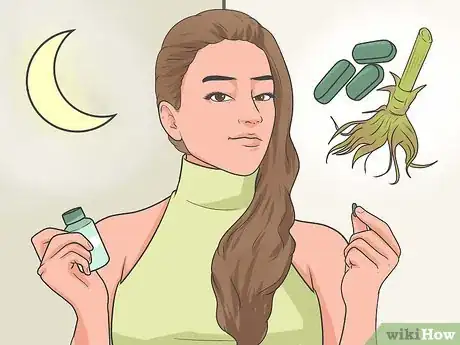
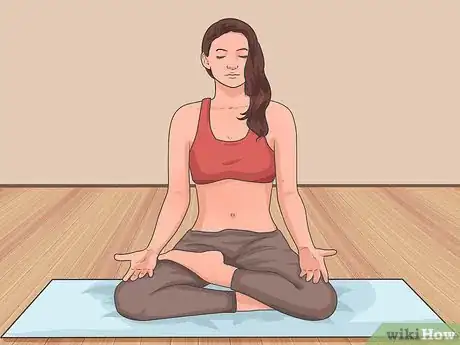
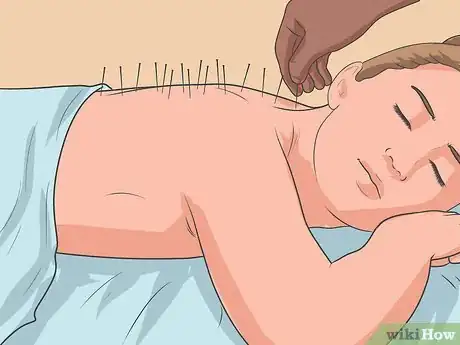
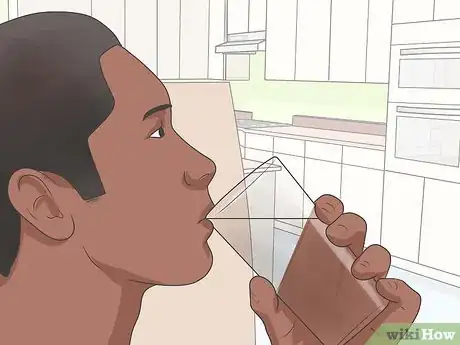
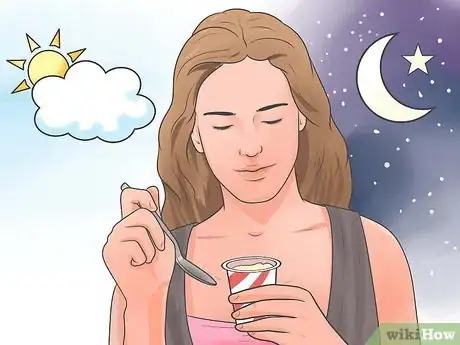
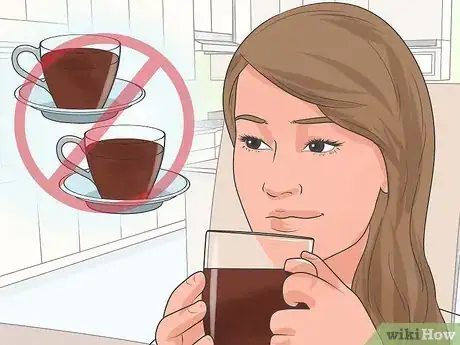
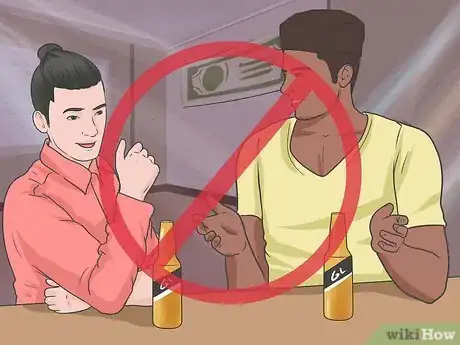
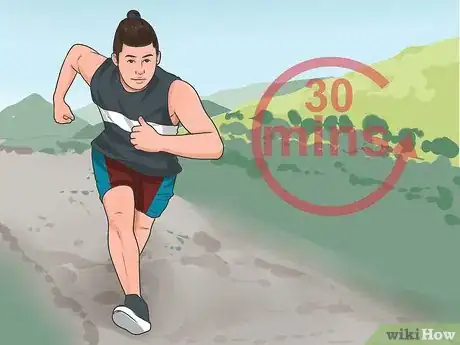
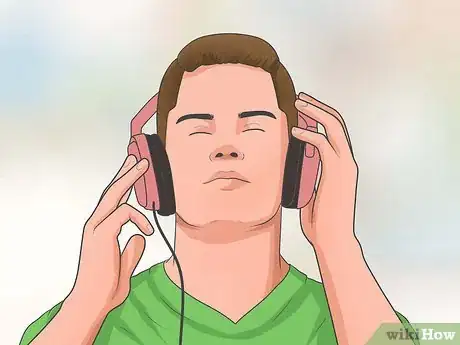
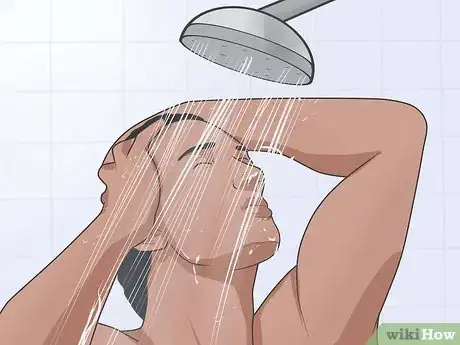
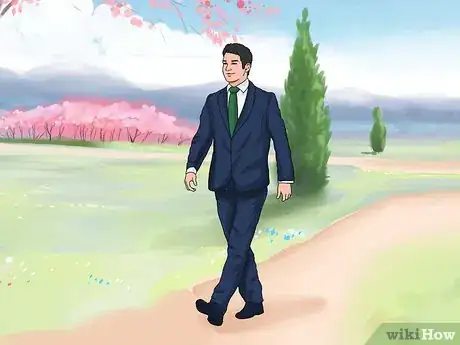
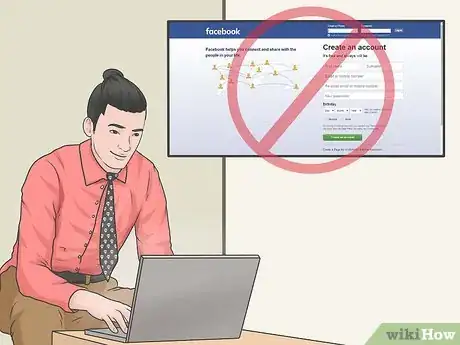
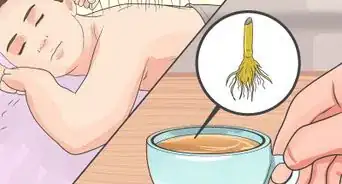
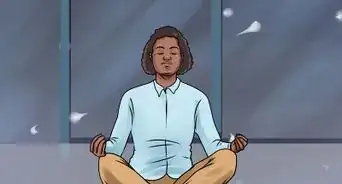
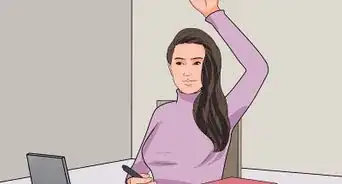
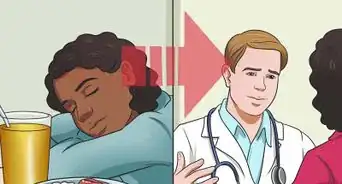
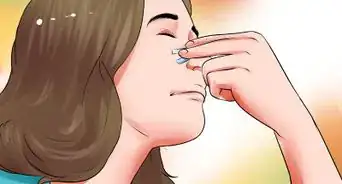
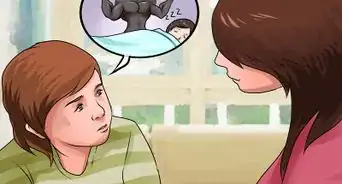

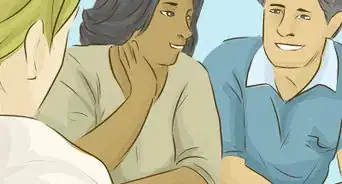

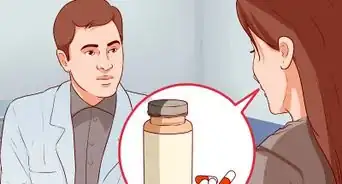
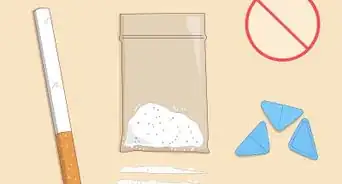
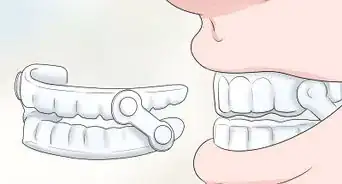
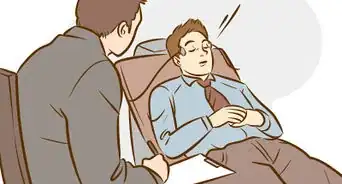
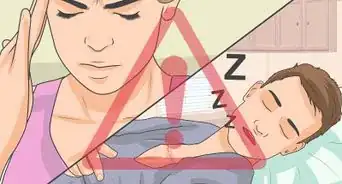









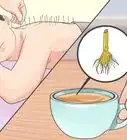
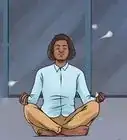
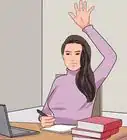
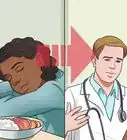



































Medical Disclaimer
The content of this article is not intended to be a substitute for professional medical advice, examination, diagnosis, or treatment. You should always contact your doctor or other qualified healthcare professional before starting, changing, or stopping any kind of health treatment.
Read More...